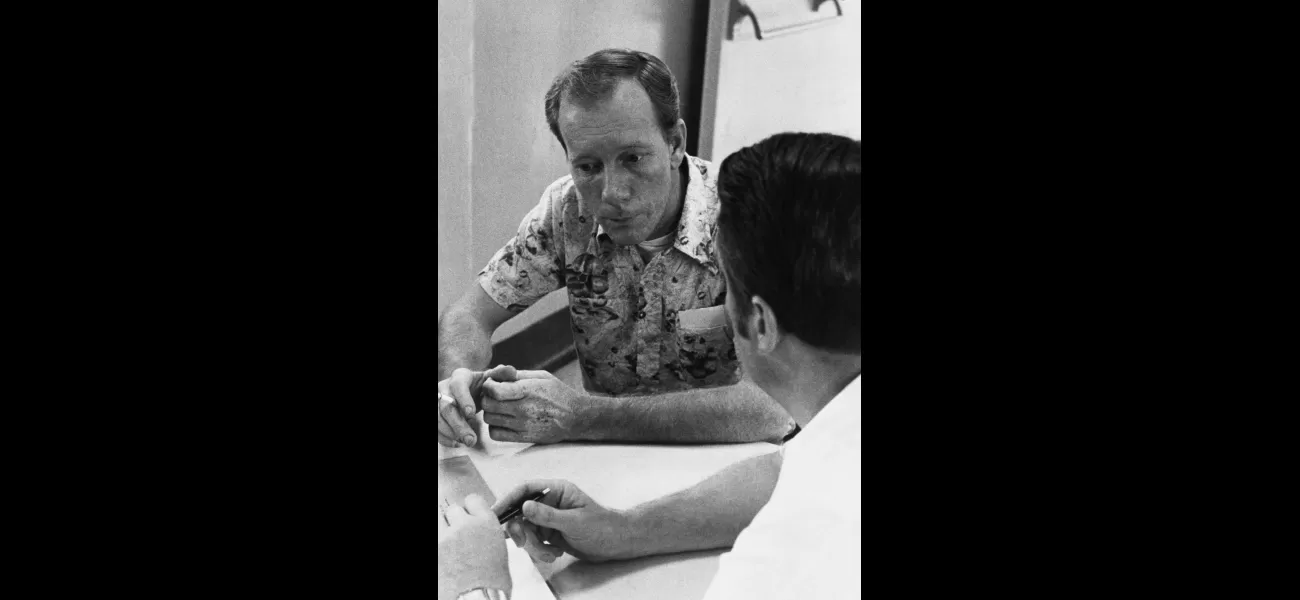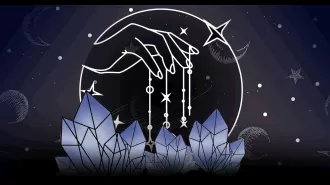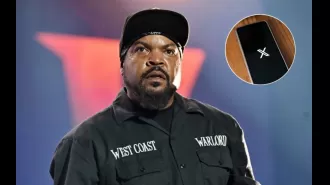A hitchhiker recounts his terrifying experience surviving a ride with a serial killer.
In 1975, Steve Fishman accepted a ride from a talkative man in a Buick while hitchhiking in Connecticut. The man later admitted to committing multiple rapes and murders.
July 8th 2024.

Content Warning: The following story contains disturbing details that some readers may find distressing.
Steve Fishman was a young man in his late teens when he had an unexpected encounter with a serial killer. At the time, he was just 19 and hitchhiking from a friend's place in Boston to Norwich, Connecticut, where he was working as an intern at a local newspaper. As he stuck out his thumb on the side of the road, hoping for a ride, a man in a green Buick sedan pulled over and introduced himself as "Red." He kindly offered Fishman a ride and he eagerly hopped in, grateful for the lift.
The man, whose real name was Robert Frederick Carr III, seemed friendly enough with his balding head and patches of red hair that earned him his nickname. However, little did Fishman know, Carr was hiding a dark secret. He was actually a notorious serial killer who targeted young hitchhikers. Just three years earlier, he had brutally raped and strangled two 11-year-old boys and a 16-year-old girl who had hitched a ride with him in the Miami area. And at the time of Fishman's encounter with him, Carr was on parole after serving time for a rape in Connecticut.
Luckily, Fishman's ride with Carr only lasted about 15 minutes and he was dropped off unharmed. However, the memories of that fateful day in the fall of 1975 have stayed with him for decades. It wasn't until six months later when Carr was arrested for the attempted rape of another hitchhiker in Miami that Fishman saw his picture on a breaking news alert. Instantly, he recognized him as the friendly man who had given him a ride months earlier.
Looking back on that day, Fishman realizes that there were several red flags that he missed. For one, the passenger side door latch in Carr's car was jammed and Fishman had to open it from the outside. Plus, Carr had casually mentioned that he had just been released from prison, but Fishman didn't think to ask about his crime. As an intern at a newspaper, Fishman thought it could be a good story about a man trying to reintegrate into society, but he had no idea of the true extent of Carr's crimes.
Fast forward nearly five decades later, and Fishman, along with Carr's daughter Donna, are delving into the twisted mind of the pedophile and killer in a new season of the "Smoke Screen" podcast titled "My Friend, the Serial Killer." Through confession tapes, personal items from prison, and interviews with detectives, they are peeling back the layers of Carr's brutal crimes and deceptions.
Despite her father's death in prison in 2007, Donna continues to struggle with the dark legacy he left behind. And for Fishman, the question of how he made it out of Carr's car alive still lingers. It's a question that they are both trying to answer through their podcast.
In the 1970s, hitchhiking was a common mode of transportation and was generally considered safe. Fishman, like many others at the time, relied on the kindness of strangers to get from one place to another. However, this also provided an opportunity for predators like Carr to prey on unsuspecting victims. As a TV repairman and car salesman, Carr frequently traveled for work and used his job on the road to lure in young hitchhikers.
Most of Carr's crimes targeted children under the age of 18, and he often took them on cross-country trips before murdering them and burying their bodies. In 1972, he raped and strangled two 11-year-old boys, burying them in Louisiana and Mississippi. He also picked up a 16-year-old girl and drove her from Miami to Mississippi before killing her. His fourth victim, 21-year-old Rhonda Holloway, was strangled and buried in Connecticut shortly after his encounter with Fishman.
Carr's heinous actions were truly unforgivable, as described by the detectives who investigated his case. For nearly 33 years in law enforcement, David Simmons, one of the detectives involved in Carr's arrest, considers him to be the most dangerous child sexual predator-murderer he has ever encountered.
Today, Donna is still living in the shadow of her father's horrific legacy. She has since changed her last name and asked for her full name to be withheld for safety reasons. In an emotional interview with CNN, Donna shared the struggles she faced growing up, constantly being bullied and mocked for having a serial killer as a father. Even as a child, she could feel the weight of her father's actions, and it only got worse when he was arrested and led police on a search for his victims' bodies.
Now, as a 60-year-old woman living in West Virginia, Donna worries about the potential for a new wave of harassment if her connection to her father's crimes were to be made public. She has distanced herself from her father's last name and has shared his history with her own daughter. But the scars of his actions still remain, and Donna continues to live with the heavy burden of her father's crimes.
Content warning: This story contains details that may be distressing for some readers.
It was a typical fall day in 1975 when 19-year-old Steve Fishman found himself hitchhiking from Boston to Norwich, Connecticut. He was on his way to his internship at a local newspaper and just needed a ride to get there. As he stuck out his thumb, a green Buick sedan pulled over and a man introduced himself as "Red" and offered him a ride.
At first, Fishman thought the man seemed friendly with his balding head and patches of red hair, which he assumed was the reason for his nickname. Little did he know, this man had a dark secret. His name was Robert Frederick Carr III, and he was a serial killer who preyed on young hitchhikers.
Carr had a history of violence, having raped and strangled two 11-year-old boys and a 16-year-old girl just three years prior in the Miami area. He was on parole after serving time for another rape in Connecticut when he gave Fishman a ride that day.
The ride only lasted about 15 minutes, and Carr dropped Fishman off unharmed. However, the encounter has haunted Fishman for decades. Six months later, Carr was arrested for the attempted rape of another hitchhiker and shocked detectives when he confessed to kidnapping, raping, and killing more than a dozen people.
Edna Buchanan, a Pulitzer Prize-winning police reporter in Miami, once said, "He was about the most evil person I ever met." Fishman was shocked when he saw Carr's picture on the news and immediately recognized him as the friendly man who had given him a ride.
Looking back, Fishman realizes that there were several red flags he missed that day. The passenger door latch was jammed, and he had to open it from the outside. Carr also casually mentioned that he had just been released from prison, but Fishman didn't think to ask about his crime.
Now almost five decades later, Fishman and Carr's daughter, Donna, are unraveling the lingering questions about the pedophile and killer in a new season of the "Smoke Screen" podcast titled, "My Friend, the Serial Killer." They delve into Carr's brutal crimes and deceptions by sifting through confession tapes, personal items from prison, and interviews with detectives.
Although Carr passed away in prison in 2007, Donna still struggles with her family's dark past. Fishman also can't help but wonder how he made it out of that sedan alive.
In the 1970s, hitchhiking was a common mode of transportation, and Fishman often relied on the kindness of strangers to get around as an intern. Carr likely used this to his advantage, targeting young hitchhikers for his crimes.
Carr was a TV repairman and car salesman who lived in Norwich with his wife and two kids, Donna and her younger brother. He traveled for work and used this opportunity to prey on underage children. The majority of his crimes, which occurred in the 1970s, involved victims under the age of 18.
In 1972, Carr picked up two 11-year-old friends who were hitchhiking and raped and strangled them before burying them in Louisiana and Mississippi. He also picked up a 16-year-old girl and drove her from Miami to Mississippi, where he strangled her. His fourth victim, Rhonda Holloway, was 21 and was strangled not long after Carr's encounter with Fishman. Her body was buried in Connecticut.
Carr eventually led investigators on a cross-country trip to show them where he had buried his victims. Detective David Simmons, who was involved in his arrest, described Carr as "the most dangerous child sexual predator-murderer" he ever investigated.
Today, Donna is still living in the shadow of her father's horrific legacy. She is married with a different last name and has asked for her full name to be withheld for safety reasons. In an exclusive interview with CNN, she tearfully shared her experience of being bullied and ridiculed for having a serial killer father. She barely looked people in the eye as a child, and those who knew her father would whisper and point.
Donna learned about her father's crimes when she was 12, but it wasn't until he led police on a search for his buried victims that she fully accepted the truth. She has since dropped her father's last name and has told her daughter about his history, fearing that a public connection to him could lead to more harassment.
Despite the dark past, Fishman and Donna continue to unravel the truth about Carr and his heinous crimes in hopes of finding closure and peace.
Steve Fishman was a young man in his late teens when he had an unexpected encounter with a serial killer. At the time, he was just 19 and hitchhiking from a friend's place in Boston to Norwich, Connecticut, where he was working as an intern at a local newspaper. As he stuck out his thumb on the side of the road, hoping for a ride, a man in a green Buick sedan pulled over and introduced himself as "Red." He kindly offered Fishman a ride and he eagerly hopped in, grateful for the lift.
The man, whose real name was Robert Frederick Carr III, seemed friendly enough with his balding head and patches of red hair that earned him his nickname. However, little did Fishman know, Carr was hiding a dark secret. He was actually a notorious serial killer who targeted young hitchhikers. Just three years earlier, he had brutally raped and strangled two 11-year-old boys and a 16-year-old girl who had hitched a ride with him in the Miami area. And at the time of Fishman's encounter with him, Carr was on parole after serving time for a rape in Connecticut.
Luckily, Fishman's ride with Carr only lasted about 15 minutes and he was dropped off unharmed. However, the memories of that fateful day in the fall of 1975 have stayed with him for decades. It wasn't until six months later when Carr was arrested for the attempted rape of another hitchhiker in Miami that Fishman saw his picture on a breaking news alert. Instantly, he recognized him as the friendly man who had given him a ride months earlier.
Looking back on that day, Fishman realizes that there were several red flags that he missed. For one, the passenger side door latch in Carr's car was jammed and Fishman had to open it from the outside. Plus, Carr had casually mentioned that he had just been released from prison, but Fishman didn't think to ask about his crime. As an intern at a newspaper, Fishman thought it could be a good story about a man trying to reintegrate into society, but he had no idea of the true extent of Carr's crimes.
Fast forward nearly five decades later, and Fishman, along with Carr's daughter Donna, are delving into the twisted mind of the pedophile and killer in a new season of the "Smoke Screen" podcast titled "My Friend, the Serial Killer." Through confession tapes, personal items from prison, and interviews with detectives, they are peeling back the layers of Carr's brutal crimes and deceptions.
Despite her father's death in prison in 2007, Donna continues to struggle with the dark legacy he left behind. And for Fishman, the question of how he made it out of Carr's car alive still lingers. It's a question that they are both trying to answer through their podcast.
In the 1970s, hitchhiking was a common mode of transportation and was generally considered safe. Fishman, like many others at the time, relied on the kindness of strangers to get from one place to another. However, this also provided an opportunity for predators like Carr to prey on unsuspecting victims. As a TV repairman and car salesman, Carr frequently traveled for work and used his job on the road to lure in young hitchhikers.
Most of Carr's crimes targeted children under the age of 18, and he often took them on cross-country trips before murdering them and burying their bodies. In 1972, he raped and strangled two 11-year-old boys, burying them in Louisiana and Mississippi. He also picked up a 16-year-old girl and drove her from Miami to Mississippi before killing her. His fourth victim, 21-year-old Rhonda Holloway, was strangled and buried in Connecticut shortly after his encounter with Fishman.
Carr's heinous actions were truly unforgivable, as described by the detectives who investigated his case. For nearly 33 years in law enforcement, David Simmons, one of the detectives involved in Carr's arrest, considers him to be the most dangerous child sexual predator-murderer he has ever encountered.
Today, Donna is still living in the shadow of her father's horrific legacy. She has since changed her last name and asked for her full name to be withheld for safety reasons. In an emotional interview with CNN, Donna shared the struggles she faced growing up, constantly being bullied and mocked for having a serial killer as a father. Even as a child, she could feel the weight of her father's actions, and it only got worse when he was arrested and led police on a search for his victims' bodies.
Now, as a 60-year-old woman living in West Virginia, Donna worries about the potential for a new wave of harassment if her connection to her father's crimes were to be made public. She has distanced herself from her father's last name and has shared his history with her own daughter. But the scars of his actions still remain, and Donna continues to live with the heavy burden of her father's crimes.
Content warning: This story contains details that may be distressing for some readers.
It was a typical fall day in 1975 when 19-year-old Steve Fishman found himself hitchhiking from Boston to Norwich, Connecticut. He was on his way to his internship at a local newspaper and just needed a ride to get there. As he stuck out his thumb, a green Buick sedan pulled over and a man introduced himself as "Red" and offered him a ride.
At first, Fishman thought the man seemed friendly with his balding head and patches of red hair, which he assumed was the reason for his nickname. Little did he know, this man had a dark secret. His name was Robert Frederick Carr III, and he was a serial killer who preyed on young hitchhikers.
Carr had a history of violence, having raped and strangled two 11-year-old boys and a 16-year-old girl just three years prior in the Miami area. He was on parole after serving time for another rape in Connecticut when he gave Fishman a ride that day.
The ride only lasted about 15 minutes, and Carr dropped Fishman off unharmed. However, the encounter has haunted Fishman for decades. Six months later, Carr was arrested for the attempted rape of another hitchhiker and shocked detectives when he confessed to kidnapping, raping, and killing more than a dozen people.
Edna Buchanan, a Pulitzer Prize-winning police reporter in Miami, once said, "He was about the most evil person I ever met." Fishman was shocked when he saw Carr's picture on the news and immediately recognized him as the friendly man who had given him a ride.
Looking back, Fishman realizes that there were several red flags he missed that day. The passenger door latch was jammed, and he had to open it from the outside. Carr also casually mentioned that he had just been released from prison, but Fishman didn't think to ask about his crime.
Now almost five decades later, Fishman and Carr's daughter, Donna, are unraveling the lingering questions about the pedophile and killer in a new season of the "Smoke Screen" podcast titled, "My Friend, the Serial Killer." They delve into Carr's brutal crimes and deceptions by sifting through confession tapes, personal items from prison, and interviews with detectives.
Although Carr passed away in prison in 2007, Donna still struggles with her family's dark past. Fishman also can't help but wonder how he made it out of that sedan alive.
In the 1970s, hitchhiking was a common mode of transportation, and Fishman often relied on the kindness of strangers to get around as an intern. Carr likely used this to his advantage, targeting young hitchhikers for his crimes.
Carr was a TV repairman and car salesman who lived in Norwich with his wife and two kids, Donna and her younger brother. He traveled for work and used this opportunity to prey on underage children. The majority of his crimes, which occurred in the 1970s, involved victims under the age of 18.
In 1972, Carr picked up two 11-year-old friends who were hitchhiking and raped and strangled them before burying them in Louisiana and Mississippi. He also picked up a 16-year-old girl and drove her from Miami to Mississippi, where he strangled her. His fourth victim, Rhonda Holloway, was 21 and was strangled not long after Carr's encounter with Fishman. Her body was buried in Connecticut.
Carr eventually led investigators on a cross-country trip to show them where he had buried his victims. Detective David Simmons, who was involved in his arrest, described Carr as "the most dangerous child sexual predator-murderer" he ever investigated.
Today, Donna is still living in the shadow of her father's horrific legacy. She is married with a different last name and has asked for her full name to be withheld for safety reasons. In an exclusive interview with CNN, she tearfully shared her experience of being bullied and ridiculed for having a serial killer father. She barely looked people in the eye as a child, and those who knew her father would whisper and point.
Donna learned about her father's crimes when she was 12, but it wasn't until he led police on a search for his buried victims that she fully accepted the truth. She has since dropped her father's last name and has told her daughter about his history, fearing that a public connection to him could lead to more harassment.
Despite the dark past, Fishman and Donna continue to unravel the truth about Carr and his heinous crimes in hopes of finding closure and peace.
[This article has been trending online recently and has been generated with AI. Your feed is customized.]
[Generative AI is experimental.]
0
0
Submit Comment





